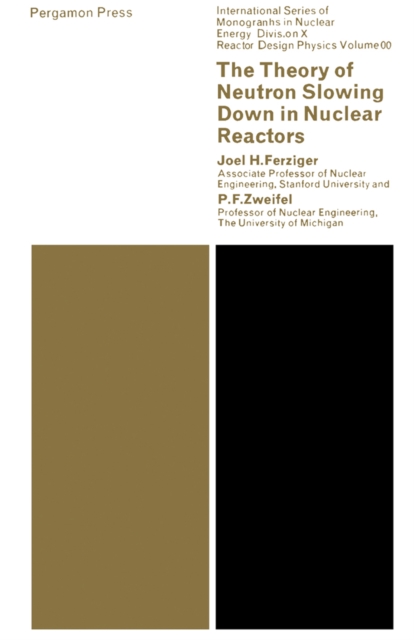
The Theory of Neutron Slowing Down in Nuclear Reactors : International Series of Monographs in Nuclear Energy PDF
by Joel H. Ferziger, P. F. Zweifel
Edited by J. V. Dunworth, D. J. Silverleaf
Description
The Theory of Neutron Slowing Down in Nuclear Reactors focuses on one facet of nuclear reactor design: the slowing down (or moderation) of neutrons from the high energies with which they are born in fission to the energies at which they are ultimately absorbed.
In conjunction with the study of neutron moderation, calculations of reactor criticality are presented.
A mathematical description of the slowing-down process is given, with particular emphasis on the problems encountered in the design of thermal reactors. This volume is comprised of four chapters and begins by considering the problems of neutron moderation and their importance in all types of reactors.
An asymptotic reactor model is described, and the calculation of the elastic scattering frequency is explained.
Subsequent chapters focus on the process of slowing down in finite and infinite medium by analyzing capture by individual resonances; resonance integrals in heterogeneous systems; the slowing-down kernels; the spherical harmonics method; statistical methods; and small source theory.
The final chapter presents numerical solutions of the Boltzmann equation and covers topics such as the multigroup approach, group constants, and solution of the multigroup equations. This book will be a useful resource for nuclear physicists and engineers.
Information
-
Download - Immediately Available
- Format:PDF
- Pages:320 pages
- Publisher:Elsevier Science
- Publication Date:22/10/2013
- Category:
- ISBN:9781483154992
Information
-
Download - Immediately Available
- Format:PDF
- Pages:320 pages
- Publisher:Elsevier Science
- Publication Date:22/10/2013
- Category:
- ISBN:9781483154992






